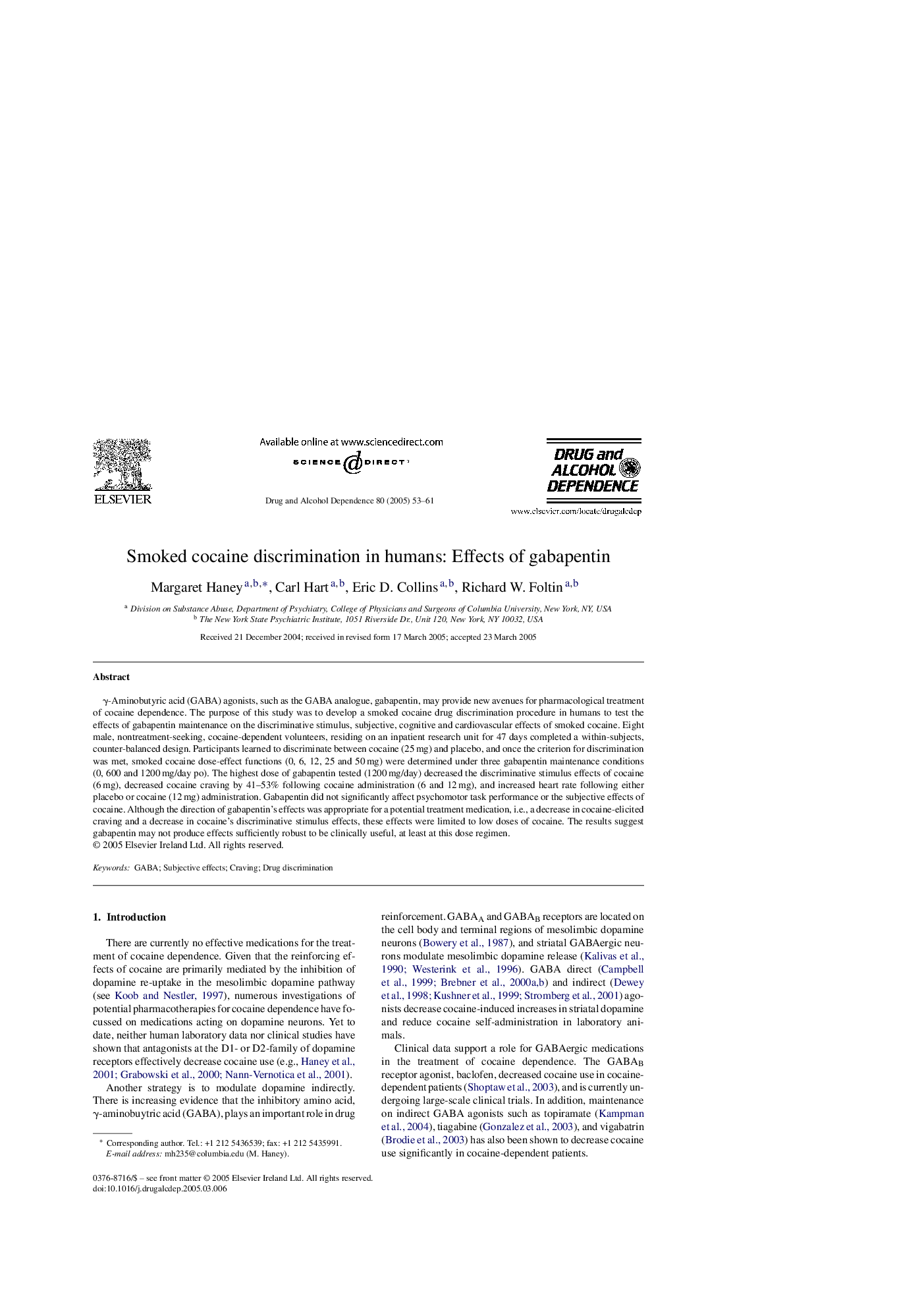| Article ID | Journal | Published Year | Pages | File Type |
|---|---|---|---|---|
| 10510122 | Drug and Alcohol Dependence | 2005 | 9 Pages |
Abstract
γ-Aminobutyric acid (GABA) agonists, such as the GABA analogue, gabapentin, may provide new avenues for pharmacological treatment of cocaine dependence. The purpose of this study was to develop a smoked cocaine drug discrimination procedure in humans to test the effects of gabapentin maintenance on the discriminative stimulus, subjective, cognitive and cardiovascular effects of smoked cocaine. Eight male, nontreatment-seeking, cocaine-dependent volunteers, residing on an inpatient research unit for 47 days completed a within-subjects, counter-balanced design. Participants learned to discriminate between cocaine (25 mg) and placebo, and once the criterion for discrimination was met, smoked cocaine dose-effect functions (0, 6, 12, 25 and 50 mg) were determined under three gabapentin maintenance conditions (0, 600 and 1200 mg/day po). The highest dose of gabapentin tested (1200 mg/day) decreased the discriminative stimulus effects of cocaine (6 mg), decreased cocaine craving by 41-53% following cocaine administration (6 and 12 mg), and increased heart rate following either placebo or cocaine (12 mg) administration. Gabapentin did not significantly affect psychomotor task performance or the subjective effects of cocaine. Although the direction of gabapentin's effects was appropriate for a potential treatment medication, i.e., a decrease in cocaine-elicited craving and a decrease in cocaine's discriminative stimulus effects, these effects were limited to low doses of cocaine. The results suggest gabapentin may not produce effects sufficiently robust to be clinically useful, at least at this dose regimen.
Related Topics
Life Sciences
Neuroscience
Behavioral Neuroscience
Authors
Margaret Haney, Carl Hart, Eric D. Collins, Richard W. Foltin,
